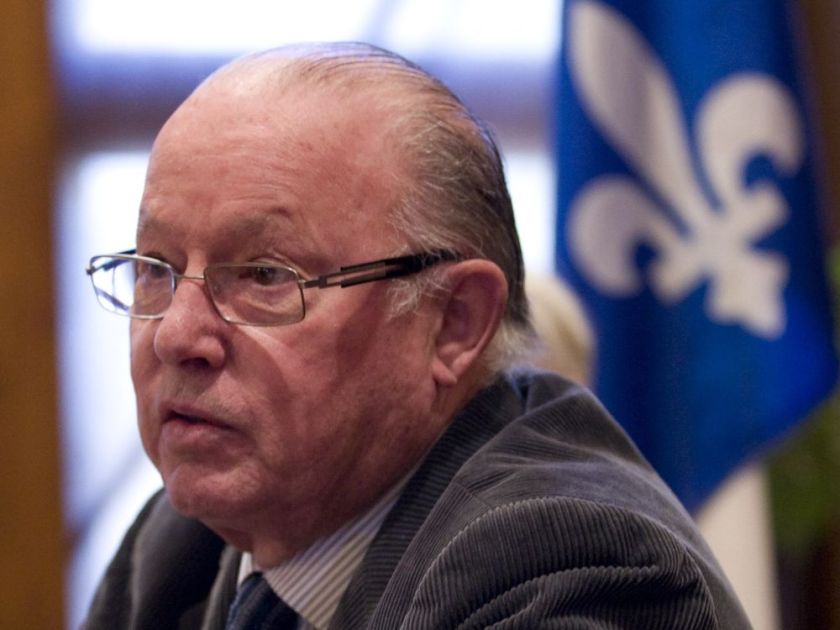Bernard Landry shouldn’t have cared a wink about me or what I wrote.
Landry was a separatist politician who led the Parti Québécois from 2001 to 2005. I’m an anglophone journalist. We should have existed in that karmically challenged status quo bedevilling many English journalists and the politicians they cover: I would continue to write unsympathetic things about him, and he would continue to ignore me.
But Landry, who died Tuesday at the age of 81, always called back. I’d arrange something with his secretary, then go meet him in his office in Old Montreal or at the UQAM monstrosity on Ste-Catherine Street, where he taught economics and business strategy on and off for more than three decades.
He was combative, unbowed and forever optimistic regarding the cause of Quebec separation.
He also had a caustic way with words, in 2001 remarking that Quebec did not intend to “faire le trottoir pour des bouts de chiffons rouges,” referring to an $18-million federal loan to a Quebec City zoo and aquarium that was contingent on the use of bilingual signs. The remark was widely translated as, “Quebec isn’t going to prostitute itself for a bit of red rag,” taken as a reference to the Canadian flag.
After I referred to this in a piece eight years later, Landry sent me a long email saying he was misquoted. He said he was referring to a matador’s cape. “I have a lot of respect for the Canadian flag,” he said, despite having compared Canada to a deep-pocketed chump buying favours the way some buy sex.
Yet Landry rarely if ever turned his tongue against Quebecers themselves, unlike many of his nationalist cohorts. “Quebecers have become imbeciles,” Pierre Falardeau once told me, dismissing his fellow citizens as “a population living in the suburbs, shopping at Walmart.” Landry instead faulted sovereignist leaders, himself included, for failing to convince them. “It takes time,” he told me in 2007. “We chose the route of democracy, and it is slow, but I like this more than violence.”
In 2005, he resigned as PQ leader in a huff following what he considered an unsatisfactory leadership review. He regarded the frequent departure of the party’s leaders not as a symptom of institutional malaise, but as a necessary evil in the monumentally difficult task of birthing a new country.
I’d go to see him at one of his offices armed with the news of the day — another poll showing support for sovereignty at yet another all-time low, say, or the most recent chapter of the soap opera roiling within the PQ. He’d wave them off as distractions. I’d mention the movement’s simmering demographic challenges; he’d counter with how the party just needed the right leader.
Once I made the mistake of suggesting, albeit with a certain amount of evidence, that the Parti Québécois was drifting toward ethnic nationalism. He stopped me short with a raised finger. “Anyone attempting to discredit the sovereignist movement on ethnic lines is dealing in urban myths,” he said.
This sounded like wishful thinking, along with Landry’s Monty Python-esque belief that sovereignty wasn’t dying, just suffering the occasional flesh wound. He saw hope for the cause in everything, including businessman and erstwhile PQ leader Pierre Karl Péladeau, whose union-busting conservatism was anathema to Landry.
“He’s a billionaire, he didn’t come to politics because he needed the money, but to make a country,” Landry told me in early 2016. Péladeau resigned five months later, with Canada still very much intact.
The extent to which Landry believed not only in the cause, but in the possibility of achieving it was something to behold. To be honest, I’m jealous of the passion he had for something that doesn’t exist, and has stubbornly resisted existing, for half a century. If his country never comes to be, it’s in large part because there weren’t more like him.
























